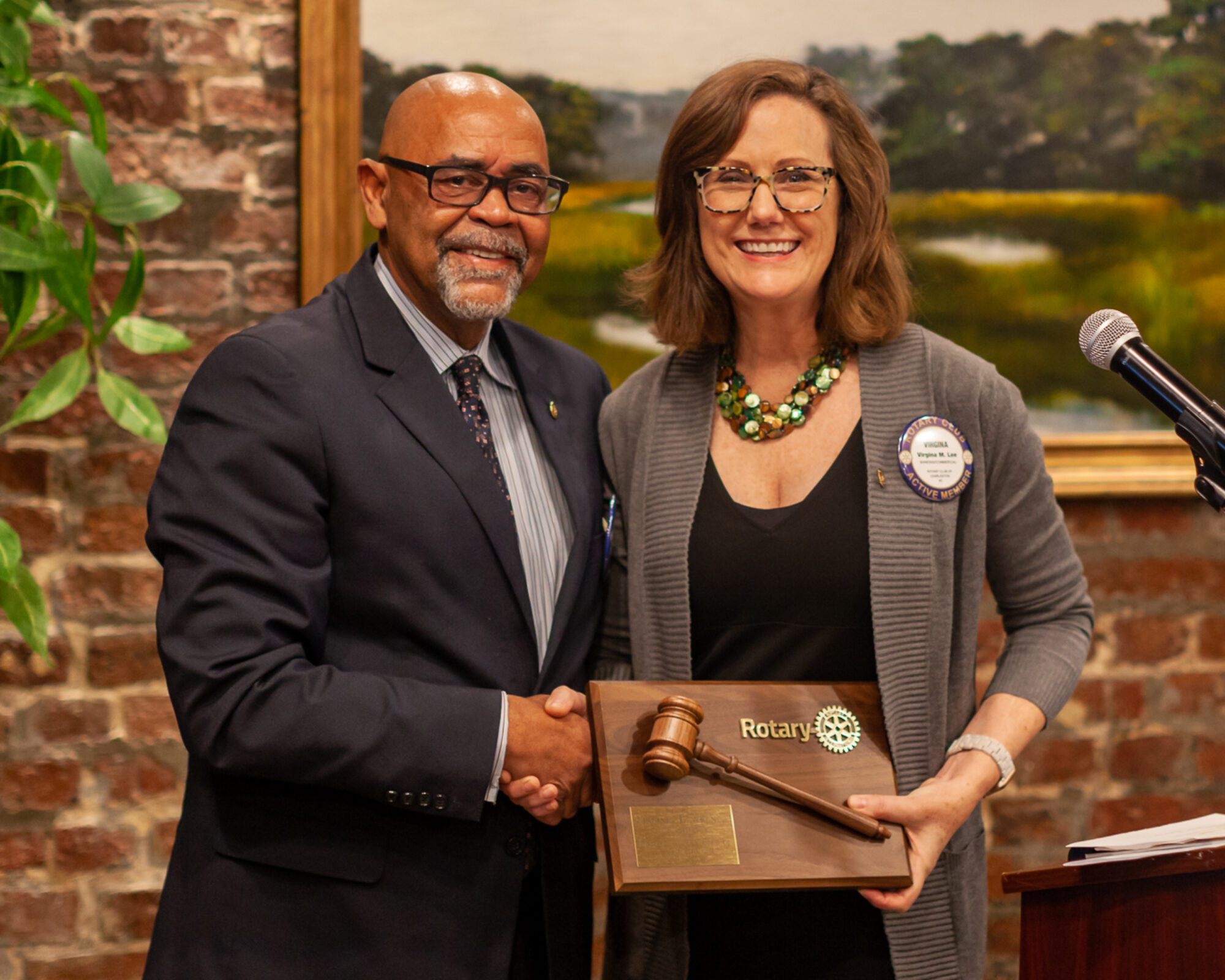February 14, 2017 – Our speaker this week was Anton Gunn, the Chief Diversity Officer at the Medical University of South Carolina, and his message was about what he has learned are the basic principles of leadership. The oldest son of a Navy Chief Petty Officer, Gunn learned leadership early at home. His lessons continued as he became a star offensive lineman for the USC Gamecocks. Gunn went on to become a South Carolina state legislator before becoming a leading officer of the United States Department of Health and Human Services.
Gunn said, however, that Valentine’s Day is special to him, because that is when his practice of leadership began. It was on February 14, 1978, when his younger brother, Cherone, was born. He remembers vividly when his mother first asked him to watch the two-year-old Cherone while she went upstairs, giving him his first experience of being responsible for others.
It is his father who Gunn credits with truly teaching him the principles of leadership. A chief petty officer is the penultimate model of leadership for Gunn, because the CPO’s journey to leadership begins at the bottom. Each step in that journey brings its lessons and these Gunn’s father instilled in him and his brothers.
Gunn’s first job was helping disadvantaged people access healthcare. In reaching out to the community he served he learned that there are basically only two types of hospitals – those you want to care for you when you need help and those you never want to enter for fear you will not leave them alive. And it was in working with these clients that Gunn learned how important diversity and inclusion is. To lead one must learn to respect others and other values. Furthermore leaders take action when they see problems. That is why in 2006 Gunn ran for the state legislature. The seat he sought was in the Sandhills section of Columbia, a predominately white area. Many of his friends and associates thought as a black man Gunn was crazy to run in that district, but he went door to door and out of 14,000 votes, lost by only 298. That loss reminded Gunn of another of his father’s lessons – in life sometimes you win and sometimes you learn, but you never really lose. Every adversity is a chance to learn. Gunn must have learned from that election, because in 2008 he won that same legislative seat by 3,000 votes!
But Gunn returned to his memories of his brother Cherone to illustrate the principles of leadership. Like Gunn, Cherone played football and was a student leader, but after high school he did not want to go to college. Instead in 2000 he joined the Navy like his father, making his the fourth generation of his family to serve our country in the military. After basic training and advanced training for his specialty as a signalman he had his first deployment. It was on this deployment on October 12, 2000, on the USS Cole that Cherone paid the ultimate sacrifice for his country as he and sixteen other crew members were killed in a terrorist attack. To Gunn, Cherone’s life and death epitomize the principles of leadership. Leadership is sacrifice – you have to give something. Leadership, Gunn continued, is commitment. Leadership is not a noun – it is a verb. You have to earn it every day by taking action and by getting things done.
Diversity and healthcare are issues near to Gunn’s heart as evidenced by his entire career. He believes healthcare is truly a matter of national security. As an entry-level worker for a nonprofit seeking to increase the availability of healthcare for disadvantaged communities, as a state legislator, as a leading health official of the U.S. Government and now as the officer in charge of diversity efforts at one of our nation’s leading medical schools, Gunn takes the lessons of leadership he has learned and applies them to these vital issues daily. And at this time with such flux in the healthcare industry and concerns of diversity heightened throughout our nation, we need Gunn’s leadership and that of others like him as never before.
— Alex Dallis, Keyway Committee


